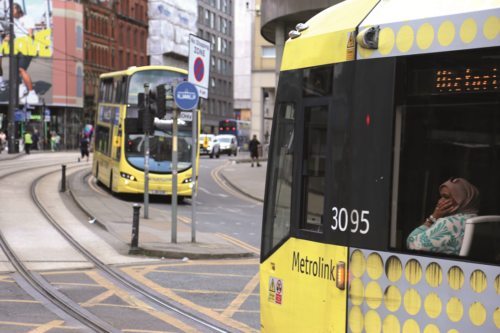
A new approach to transport ticketing could offer a step towards an integrated, transparent system that works efficiently for both ticket providers and passengers across all modes of transport, say specialists at the University of Birmingham, whilst avoiding some of the vulnerabilities of traditional systems such as a lack of transferability across multi-modal transport networks, and an inability to adapt to policy changes and new technologies.
The specialists at the University have outlined a new ‘blockchain’ system that offers a new foundation for all ticketing providers in a new paper. STUB (System for Ticketing Ubiquity within Blockchains) is said to bring together the capabilities of two separate technologies – blockchain and ontology.
A blockchain is a distributed ledger that that records transactions in a way that is designed to ensure security, transparency, and immutability, and an ontology is formal representation of knowledge within a domain and the relationships between those concepts, used to model and manage complex information systems. The researchers have demonstrated how both technologies could be combined to create what they say would be a robust, transparent, and interconnected data framework that ensures consistent and reliable shared knowledge.
The system would allow ticket providers to sell and validate tokenised tickets on the blockchain, ensuring universal accessibility across all providers. The integration of ontology allows providers to capture and share contextual information about the transport network, enabling them to offer comprehensive data about routes, schedules, and availability, and in turn streamlining the ticketing process.
The paper’s lead author Dr Joe Preece said: “Transport systems around the world are becoming increasingly interconnected. Ticketing systems are key to this and there is a growing interest in the use of smarter transport ticketing that harnesses emerging technologies to overcome the limitations of traditional systems.
“The system we have devised enables ticket providers to operate in a more transparent, flexible environment, that will ultimately offer passengers a more user-friendly experience. STUB’s approach is not to be a single central data platform with transport policy baked-in, but instead to be a policy-agnostic approach that empowers existing ticket providers and technologies to share core ticketing data and to build new solutions on top of.”
The team says the next step will be to set up a pilot scheme for the technology in a regional transport network, to demonstrate its efficacy, and to get feedback from ticket operators and passengers.
“A big challenge to implementation will be the integration with existing ticketing infrastructure to work alongside the current standardised approaches whilst we scale up the technology. Setting up a successful pilot will be key to breaking down these barriers,” Joe added.

